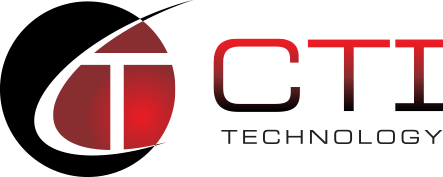Why Most Managed IT Services Companies Will Never Share Information About Signal Messaging App With You: Unveiling the Hidden Reasons
Signal messaging app has gained popularity for its strong encryption and privacy features. Despite this, many managed IT services companies remain tight-lipped about it. You might wonder why these companies, usually eager to recommend the latest tech solutions, hesitate to discuss Signal.
Managed IT services companies often avoid sharing information about Signal due to concerns over potential security risks and liability issues. While Signal offers robust end-to-end encryption, its use in corporate environments can complicate data retention policies and regulatory compliance. Some IT providers worry that recommending Signal could lead to sharing sensitive company information outside approved channels.
The reluctance to discuss Signal also stems from the app’s reputation as a tool for privacy-conscious individuals and activists. IT companies may fear that promoting Signal could be seen as endorsing behavior that circumvents corporate oversight. This caution reflects the delicate balance these providers must strike between offering cutting-edge communication tools and controlling company data.
Key Takeaways
- IT service providers often avoid discussing Signal due to security and compliance concerns
- Recommending Signal could potentially conflict with corporate data retention policies
- The app’s association with privacy activism may deter IT companies from promoting its use
Decoding the Silence
The reasons behind managed IT services companies’ silence regarding Signal are rooted in their business practices and information security protocols. These factors shape how they handle sensitive information about secure messaging apps.
The Business Model of Managed IT Services
Managed IT services companies often prioritize corporate-approved communication tools over consumer-oriented apps like Signal. Their focus is on providing consistent and dependable IT support for business environments, which aligns with their goal of maximizing productivity and efficiency for their clients.
These companies might prefer enterprise-level solutions that offer centralized management and compliance features. Being a consumer-focused app, Signal may not fit into their standard service offerings.
Additionally, managed IT services aim to provide a unified communication strategy. They often avoid recommending multiple messaging platforms to maintain simplicity and reduce potential security risks for their clients.
Protective Measures and Confidentiality
Managed IT services companies are bound by strict confidentiality agreements with their clients. This commitment to privacy extends to the tools and technologies they discuss or recommend.
You’ll notice that these companies are cautious about sharing information on apps like Signal due to potential security implications. They may be concerned that discussing such tools could inadvertently reveal vulnerabilities or sensitive information about their clients’ communication strategies.
Moreover, information sharing in business can be complex. Managed IT services providers must balance the need for transparency with the obligation to protect their clients’ data. This often results in a conservative approach to discussing specific communication tools, especially those not directly under their control.
Understanding Signal Messaging App
Signal is a privacy-focused messaging app that prioritizes user security and data protection. It offers end-to-end encryption and collects minimal user information.
Signal’s Privacy Philosophy
Signal’s core philosophy revolves around protecting user privacy. The app uses advanced encryption protocols to ensure that messages, calls, and shared media remain private. Signal doesn’t store user data on its servers, making it difficult for anyone, including the company itself, to access your conversations.
You can feel confident knowing that Signal doesn’t collect personal information beyond your phone number. This approach minimizes the data that could be shared with authorities or other third parties.
Signal’s commitment to privacy extends to its open-source nature. This transparency allows experts to review the code and verify its security claims.
How Signal Differs from Other Messaging Apps
Unlike many popular messaging apps, Signal doesn’t collect metadata about your communications. It doesn’t know who you’re talking to, when, or how often.
Signal’s unique features include:
- Disappearing messages
- Screen security to prevent screenshots
- Encrypted group chats and calls
While other apps like WhatsApp and Telegram offer some encryption, they may still share limited user data with authorities. Signal, on the other hand, can only provide minimal information if legally compelled.
The app’s Signal Protocol is so secure that other messaging platforms have adopted it. This demonstrates Signal’s leadership in messaging security.
The Tightrope of Transparency
Transparency in managed IT services involves a delicate balance between openness and security. Companies must carefully navigate sharing information while protecting sensitive data and operational details.
Balancing Client Knowledge with Operational Security
You might wonder why your IT service provider seems hesitant to share certain information. It’s not about keeping secrets but rather protecting critical systems and data. Providers walk a fine line between keeping you informed and safeguarding their operations.
They may limit details about security measures to prevent potential vulnerabilities. For example, specifics about firewall configurations or intrusion detection systems are often kept confidential.
Your provider might share general system health and performance updates without revealing underlying technical specifics. This approach aims to keep you informed while maintaining robust security practices.
Information Sharing Policies in IT Companies
IT service companies typically have structured policies for information sharing. These guidelines determine what details can be disclosed to clients and when.
You’ll often find that providers offer regular reports and meetings to keep you updated. These may include:
- Weekly status updates
- Monthly performance reports
- Quarterly review meetings
These interactions allow you to stay informed about your IT environment without compromising security. Providers may use dashboards or portals to give you real-time insights into certain aspects of your services.
Remember, a good provider will strive for transparency in addressing your requests and concerns. They should be willing to explain their processes and decision-making, even if some technical details remain confidential.
Client Communication Strategies
Effective client communication is crucial for managed IT service providers. Balancing privacy concerns with market demands requires a thoughtful approach to educating clients and addressing their expectations.
Educating Clients on the Need for Privacy
You need to help your clients understand the importance of privacy in today’s digital landscape. Start by explaining the potential risks of using unsecured messaging apps. Share real-world examples of data breaches and their consequences.
Highlight the benefits of using secure communication channels in business operations. Compare popular messaging apps with more secure alternatives.
Provide easy-to-understand materials that outline privacy features and their significance. Consider hosting workshops or webinars to explore privacy topics further. Encourage questions and open dialogue to address any concerns your clients may have.
Navigating Market Trends and Client Expectations
Stay informed about the latest trends in communication technology and client preferences. Regularly survey your clients to understand their needs and expectations regarding communication tools.
Establish clear communication channels that align with your client’s preferences while maintaining security standards. Be prepared to explain why certain popular apps might not meet your security criteria.
Offer a range of secure communication options to cater to different client needs. Provide training and support to help clients transition to new tools smoothly. Emphasize the added value of enhanced security in your service offerings.
Update your clients regularly on emerging threats and how your recommended solutions protect against them. This proactive approach helps build trust and reinforces the importance of your security-focused recommendations.


Industry Insights
The IT services market is evolving rapidly, with managed services providers facing unique challenges. Discretion has become crucial in maintaining a competitive edge, particularly regarding secure communication platforms like Signal.
In-Depth Analysis: IT Services Market
The managed services market is projected to reach $878.71 billion by 2032, growing at a CAGR of 14.5%. This growth is driven by increasing demand for personalized user experiences and data monetization.
North America dominates the market, holding a 44.13% share in 2024. As a client, you should know that this growth brings opportunities and challenges for service providers.
Many IT companies are expanding their offerings to include blockchain technology and social media management. These new services require heightened security measures, where apps like Signal come into play.
The Competitive Edge of Discretion
You might wonder why your IT service provider doesn’t discuss Signal openly. The answer lies in the app’s strong privacy features. Unlike other messaging platforms, Signal collects minimal data about its users.
This discretion gives IT companies a significant advantage. By using Signal, they can ensure client communications remain confidential, even if faced with legal subpoenas.
For you, this means your sensitive information is better protected. IT firms prioritizing such security measures often stand out in the competitive market.
Remember, when choosing a managed services provider, their approach to communication security can be a key differentiator. Look for companies that value your privacy as much as you do.
The Future of Digital Communication Tools
Digital communication tools are evolving rapidly, focusing on enhanced privacy and adaptability to changing business needs. New technologies are reshaping how you interact and collaborate in the digital space.
Emerging Trends in Messaging and Privacy
Messaging apps are becoming more secure and feature-rich. End-to-end encryption, which ensures conversations remain private, will be more widely adopted across platforms.
Digital Communications Governance solutions will play a crucial role in managing corporate communications. These tools will help you maintain compliance while using various messaging platforms.
Artificial intelligence will enhance your messaging experience. AI-powered chatbots and virtual assistants will become more sophisticated, helping you streamline communications and automate routine tasks.
Decentralized messaging platforms based on blockchain technology may gain traction. These offer increased data control and reduced reliance on central servers.
Anticipating Changes in IT Service Requirements
As digital communication tools evolve, your IT service needs will change. Cloud-based services will continue to grow in importance, allowing you to scale your communication infrastructure flexibly.
Robust cybersecurity measures are necessary to protect against evolving threats. IT service providers will focus on offering comprehensive security solutions tailored to your specific communication tools.
Integration capabilities will become crucial. You’ll want seamless connections between your communication platforms and other business applications.
As remote work becomes more prevalent, mobile-first solutions will dominate. Your IT services must support various devices and ensure consistent user experiences across platforms.
Data analytics tools will help you gain insights from your digital communications. They’ll allow you to analyze patterns and improve your team’s collaboration effectiveness.
Why Is CTI Technology The Best Choice For IT Services In The Chicagoland Region?






















